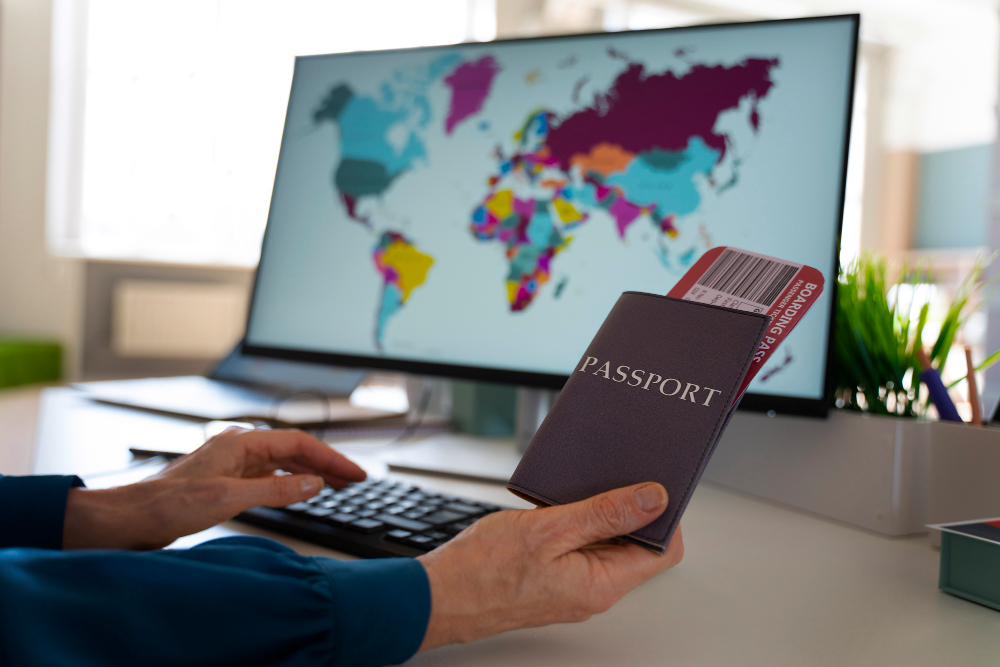An EB-1B visa is a type of employment-based immigrant visa category for foreign nationals who are outstanding researchers or professors and have a job offer from a U.S. university or research institution. This visa category is part of the Employment-Based First Preference (EB-1) category, which is reserved for individuals with extraordinary abilities or achievements in their respective fields.
To qualify for an EB-1B visa, the applicant must meet specific criteria, including:
- Outstanding Researcher or Professor: The applicant must be recognized internationally as outstanding in their academic field.
- Employment Offer: The applicant must have a job offer for a tenured or tenure-track position, or a comparable research position at a U.S. university or research institution.
- Documentation: The applicant must provide evidence of their outstanding achievements and contributions to the field, such as scholarly publications, awards, memberships in professional associations, and other relevant documentation.
- At Least Three Years of Experience: The applicant should have at least three years of research or teaching experience in their academic field.
One significant advantage of the EB-1B visa is that it does not require a labor certification from the U.S. Department of Labor, which is typically a time-consuming and complex part of the employment-based immigration process. Additionally, EB-1B applicants can self-petition, which means they do not need an employer to file the petition on their behalf.
If approved, the EB-1B visa allows the applicant and their immediate family members to become lawful permanent residents of the United States (receive a green card). This visa category is highly competitive due to its relatively short processing times and favorable immigration benefits.
How to apply for an EB-1B visa?
Applying for an EB-1B visa is a multi-step process, and it typically involves several parties, including the employer and the applicant. Here is an overview of the steps to apply for an EB-1B visa:
- Eligibility Check:
- Ensure that you meet the eligibility criteria for the EB-1B visa, including being recognized as an outstanding researcher or professor in your academic field.
- Find an Eligible U.S. Employer:
- Secure a job offer from a U.S. university or research institution for a tenured or tenure-track position, or a comparable research position. The employer will play a crucial role in the application process.
- Employer’s Role:
- Your U.S. employer must initiate the EB-1B visa process by filing an immigrant petition on your behalf. This petition is typically filed using USCIS Form I-140, Immigrant Petition for Alien Worker.
- Gather Documentation:
- Work closely with your employer to gather all the required documentation to support your EB-1B petition. This documentation should demonstrate your outstanding achievements and contributions in your academic field. Examples of evidence may include:
- Scholarly publications
- Awards and honors
- Letters of recommendation from experts in your field
- Conference presentations
- Membership in professional associations
- Patents or innovations
- Work closely with your employer to gather all the required documentation to support your EB-1B petition. This documentation should demonstrate your outstanding achievements and contributions in your academic field. Examples of evidence may include:
- Labor Certification Exemption:
- One of the advantages of the EB-1B visa is that it does not require a labor certification from the U.S. Department of Labor.
- Submit the Petition:
- Your U.S. employer will submit the completed Form I-140, along with the supporting documentation and the appropriate filing fee, to the U.S. Citizenship and Immigration Services (USCIS).
- Wait for USCIS Processing:
- USCIS will review the petition and documentation to determine if you meet the eligibility criteria for the EB-1B visa. The processing times can vary, but premium processing (for an additional fee) is available for faster processing.
- Adjustment of Status or Consular Processing:
- If your EB-1B petition is approved, you can proceed with either adjusting your status to a lawful permanent resident (green card holder) if you are already in the U.S., or you can undergo consular processing if you are outside the U.S. to receive your immigrant visa.
- Attend a Visa Interview (if applicable):
- If you are outside the U.S., you may need to attend a visa interview at a U.S. consulate or embassy as part of the consular processing.
- Receive Your Immigrant Visa or Adjust Status:
- Once the immigrant visa is approved, you can enter the U.S. as a permanent resident. If you adjusted status in the U.S., you will receive your green card by mail.
What other options are available under the EB-1 visa category?
The EB-1 visa category includes three subcategories, each targeting individuals with exceptional abilities or achievements in their respective fields. These subcategories are:
- EB-1A: Extraordinary Ability
- The EB-1A visa is designed for individuals with extraordinary ability in the sciences, arts, education, business, or athletics. To qualify for this category, you must demonstrate sustained national or international acclaim and recognition for your achievements. You do not need a job offer or employer sponsorship to apply for an EB-1A visa. Instead, you can self-petition by filing USCIS Form I-140 and providing evidence of your extraordinary ability.
- EB-1B: Outstanding Professor or Researcher
- The EB-1B visa, as mentioned earlier, is for outstanding researchers or professors with a job offer from a U.S. university or research institution. It requires recognition as an outstanding researcher or professor and the documentation of relevant qualifications.
- EB-1C: Multinational Manager or Executive
- The EB-1C visa is for multinational managers or executives who have been employed by a qualifying international company and are being transferred to the United States to work for a related U.S. company. To be eligible, you must have been employed abroad for at least one of the three years preceding the transfer and be coming to the U.S. to work in a managerial or executive capacity.
Each of these subcategories has its own specific eligibility criteria and documentation requirements. They all fall under the Employment-Based First Preference (EB-1) category, which typically has shorter processing times and may be more favorable in terms of employment-based immigration.
It’s important to note that the eligibility standards for these visas are quite high, and applicants are expected to provide substantial evidence to support their claims. Consulting with an immigration attorney who specializes in employment-based immigration can be valuable to navigate the application process successfully.







